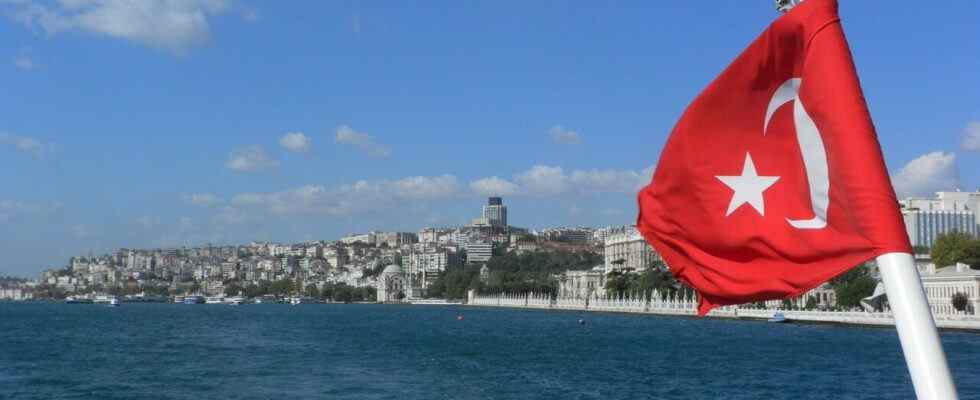With the recent decision of the Central Bank to cut interest rates, interest rates decreased from 14% to 13%. While foreign countries are moving towards contractionary policies against the inflation that is emerging all over the world, Turkey continues to remain in an expansionary policy despite the 79.60% (annual) inflation. With this high inflation, the purchasing power of households continues to decline, while high capital requirements on the part of companies make things difficult. Although the Central Bank policy rates are low, market rates remain high. Even though the market rates are negative (below inflation) in real terms, they are considerably high in nominal terms. It is difficult for companies to cope with these interest rates.

The main factor creating this troubled process is inflation itself. Although we have observed a serious increase in inflation recently, Turkey’s fight against inflation is not new. A country that has suffered from high inflation for nearly 40 years. The inflation problem that started in the 70s (1973 Oil Crisis) in the world was largely brought under control in the 80s and later. These countries brought inflation to the 4%-2% band, that is, to what we call creeping inflation, and inflation remained under control for a long time. When inflation enters this band, inflation expectations are largely absent. In other words, inflation is out of people’s agenda and this prevents inflation from occurring in the future.
Resident Inflation Trouble!
However, this has never been the case in Turkey. Inflation; The independent Central Bank, which started in the early 2000s, decreased to 7-8% with the correct monetary and fiscal policy steps. However, the target of the Central Bank could not be reached to 4%. The fact that inflation could not be brought to the target within the favorable economic and structural conditions that occurred at that time (which is a 7-year period) shows that inflation is a fact of Turkey. Along with Turkey, there are 3-5 countries that are in high inflation and cannot control inflation in the world, these countries consist of some South American and African countries. Comparing it with Turkey would be an insult to Turkey. So, what should Turkey do in this case?
The current government has no intention of reducing inflation. “If we keep the economy active until the election and are elected after the election, we will find a solution. If we are not elected, then we will leave the bomb in the hands of the opposition”. The exchange rate rises when released, which fuels inflation. If the exchange rate is suppressed, meaning that the exchange rate does not increase in high inflation, it means that the TL is evaluated in real terms. In other words, while the increased production cost increases the exporter’s cost, the constant exchange rate takes away the profit. This will reduce exports. In addition, households will shift to imports due to rising domestic market prices. This will explode the current account deficit and cause foreign exchange outflow. For this reason, the government is trying to make the exporters happy by increasing the rate slowly (controlled) until the elections, despite the increase in inflation. However, this is not a solution.
In this bad course, there will be a change of government and a change in perception with the new government. Confidence will also be ensured by the important reforms to be made. However, these are not enough to control the inflation monster. Trust is a good thing, but not just trust. To prevent this inflation, drastic measures will have to be taken in the economy. As a result, we will see a prolonged recession and then an explosion in unemployment. Truthfully, politics in Turkey does not make it happen. The political toll of this will be very heavy. This means that the new government will lose the next election or have to go to early elections.
Resident Inflation Needs Reform, Not Politics!
The important thing to do here is a currency reform. Turkey should get rid of this criminal money, which has not been able to control inflation for 40 years. Of course, this is not a mechanical task like throwing zero out of money and switching from YTL to TL. Comprehensive change is required, with currency reform incorporated into structural reforms.
There are examples of this in history. For example, Germany changed its currency after the great inflation it experienced and tried to get rid of the perception created by the old money by switching to a new currency. It is essential for Turkey to take such radical steps first. People have lost their belief that inflation will decrease and they have become indifferent to inflation. Turkey’s biggest success in inflation is the high single household. And it didn’t get below that.
Fixed Rate Should Be Considered!
Another method that will get us out of the exchange rate dilemma I mentioned here is to switch to the fixed exchange rate regime. In other words, Turkey seems to have failed to achieve this flexible exchange rate regime. In the 70s, when we devalued the TL to close the current account deficit, we exploded inflation. Now we do the opposite. So, to strike a balance, we blow up the other. It seems that Turkey will not be able to find the balance unless a fixed exchange rate is used instead of a flexible one.
By removing a zero from TL and fixing it to another reserve currency (such as Euro, Dollar) will stop the negative effects. The most suitable currency for this is the Eurozone, where our trade is the most. In this way, when you use Turkish Lira, it will be as if you were using Euros. This has two major advantages. First, you control inflation. Second, you control the dryness. As a matter of fact, these are the reasons for European countries to adopt a common currency. Some countries had high inflation, while others had low inflation. This created the exchange rate difference. Therefore, merchants had to deal with their own business, commerce, as well as the exchange rate. When they switched to the common currency, traders were told “don’t worry about the exchange rate, mind your own business”. This is a step that positively affects foreign trade. At the same time, a union was formed on inflation.
It would be very positive for Turkey to join the European Union, but this is not something that will happen immediately. Since we are already in the customs union, fixing TL to Euro will also be positive. Even Switzerland, which has not created inflation and imposed capital restrictions for 400 years, has to intervene in its money from time to time. It was previously fixed to the Euro. Of course, once it is fixed, politics should follow a policy accordingly. We have before us the example of Argentina, which shows that otherwise this will not work either.
It should not be forgotten that there are 3 features that make a coin money. The first is that it is a means of accumulating savings. That is, keeping your savings in that currency. Second, it is a trading tool. Using that money when buying and selling things. Third, it is an accounting unit. That is, when you ask the price of something, they tell you in that currency. When we look at the deposit rates in foreign currency, we can easily see that the Turkish Lira has lost its first feature. The other two features began to erode. Turkey is currently on the border of hyperinflation. Crossing this border means that the money loses all its properties and the national monetary system collapses.
You can also follow me on Twitter and Telegram for my economic and market analysis.
Yes, my friends, I wanted to evaluate the markets. I will do a general analysis. I have been reading the analysis on the crypto money market and felt the need to do an analysis. Lets start… $btc $eth #dollar #gold pic.twitter.com/n1hm0fXsxx
— Furkan Bozkurt (@BzkrtFrkn) August 21, 2022
You can follow the current price action here.
Disclaimer: What is written here is not investment advice. Cryptocurrency investments are high-risk investments. Every investment decision is under the individual’s own responsibility. Finally, Koinfinans and the author of this content cannot be held responsible for personal investment decisions.
